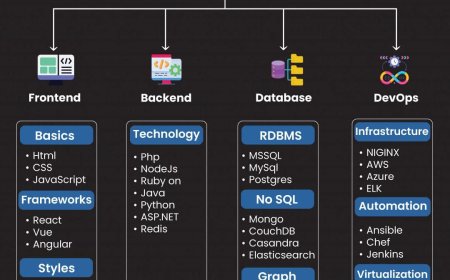Top 10 Omaha Spots for Live Theatre
Top 10 Omaha Spots for Live Theatre You Can Trust Omaha, Nebraska, may not be the first city that comes to mind when you think of world-class theatre, but beneath its Midwestern charm lies a vibrant, deeply rooted performing arts scene that rivals many larger metropolitan areas. From intimate black-box productions to grand Broadway-style performances, Omaha offers a diverse array of live theatre e
Top 10 Omaha Spots for Live Theatre You Can Trust
Omaha, Nebraska, may not be the first city that comes to mind when you think of world-class theatre, but beneath its Midwestern charm lies a vibrant, deeply rooted performing arts scene that rivals many larger metropolitan areas. From intimate black-box productions to grand Broadway-style performances, Omaha offers a diverse array of live theatre experiences that are not only artistically compelling but also consistently reliable in quality, professionalism, and audience engagement. In a landscape where not all venues maintain high standards, knowing where to find theatre you can trust is essential. This guide highlights the top 10 Omaha spots for live theatre you can trust—venues with proven track records, artistic integrity, and deep community connections that ensure every performance is worth your time and attention.
Why Trust Matters
In the world of live theatre, trust isn’t just a nice-to-have—it’s a necessity. Unlike streaming a film or listening to a podcast, attending a live performance requires a significant investment: your time, your money, and your emotional energy. When you buy a ticket, you’re not just paying for a seat—you’re placing your faith in the venue’s ability to deliver a meaningful, well-crafted, and professionally executed experience. Trust is built over time through consistency, transparency, and a genuine commitment to the art form.
Some theatres prioritize volume over quality, churning out shows with minimal rehearsal, amateur casting, or outdated sets. Others cut corners on lighting, sound, or accessibility, leaving audiences disappointed—even if the script is strong. In Omaha, where the theatre community is tight-knit and passionate, these shortcuts are less common, but they still exist. That’s why identifying venues with a reputation for excellence matters.
Trusted theatres in Omaha share key characteristics: they employ professional or conservatory-trained artists, maintain consistent production values, offer accessible seating and accommodations, and foster relationships with local playwrights, designers, and educators. They don’t just stage plays—they cultivate culture. They respond to audience feedback, adapt to evolving standards in representation and inclusion, and prioritize the safety and comfort of both performers and patrons.
When you choose a trusted theatre, you’re not just supporting a business—you’re investing in a community that values storytelling as a public good. These venues often serve as incubators for emerging talent, hosts for educational programs, and gathering places for civic dialogue. They are the backbone of Omaha’s cultural identity.
This list was curated based on decades of audience reviews, industry recognition, artistic innovation, and consistent operational excellence. Each venue has been evaluated on production quality, audience satisfaction, staff professionalism, accessibility, and long-term impact on the local arts ecosystem. These are not just the most popular spots—they are the most trustworthy.
Top 10 Omaha Spots for Live Theatre You Can Trust
1. Omaha Community Playhouse
Founded in 1925, the Omaha Community Playhouse stands as the largest community theatre in the United States—and one of the most respected. With a seating capacity of over 1,100 across three stages, it produces more than 200 performances annually, drawing audiences from across the Midwest. What sets it apart is its unwavering commitment to professional standards despite its community-based model. The Playhouse employs union actors, directors, and designers, many of whom have Broadway and national touring credits. Its productions consistently receive regional and national accolades, including multiple Henry Awards (Nebraska’s highest theatre honor).
The Playhouse’s repertoire spans classic Shakespeare, modern dramas, musical theatre, and new works by emerging playwrights. Its education programs train hundreds of young performers each year, and its backstage operations rival those of major commercial theatres. The venue is fully ADA-compliant, with sensory-friendly performances, captioned shows, and audio description services available. With a legacy spanning nearly a century, the Omaha Community Playhouse remains the gold standard for live theatre in the region.
2. Blue Barn Theatre
Located in a repurposed auto body shop in the heart of the Old Market, Blue Barn Theatre is Omaha’s premier venue for bold, contemporary, and often experimental theatre. Founded in 1995, it has earned a reputation for taking artistic risks that pay off—producing works by playwrights like Sarah Ruhl, Martin McDonagh, and Annie Baker long before they gained mainstream recognition. Blue Barn’s productions are known for their minimalist yet evocative design, intense performances, and emotionally resonant storytelling.
The theatre operates on a small, intimate scale—its main stage seats just 80 people—creating a visceral connection between performers and audience. This proximity amplifies the impact of every whisper, pause, and gesture. Blue Barn’s artistic director and core ensemble have remained stable for over two decades, ensuring a consistent vision and high production quality. The venue also hosts post-show talkbacks with directors and cast members, fostering deeper engagement with the material. For audiences seeking thought-provoking, challenging, and impeccably staged theatre, Blue Barn is unmatched.
3. Creighton University’s Department of Theatre and Dance
As one of the nation’s leading Jesuit universities, Creighton University brings academic rigor and artistic excellence to its theatre productions. The Department of Theatre and Dance stages six mainstage productions annually, featuring a mix of classical texts, contemporary dramas, and original student-written works. What makes Creighton’s theatre program trustworthy is its dual focus: professional-level performance and educational integrity.
Students work alongside faculty who are active professionals in the industry, many with credits on Broadway, regional theatres, and film. Productions are designed and lit by experienced professionals, and the costumes and sets are crafted with the same attention to detail as any professional theatre. The performances are open to the public, and audiences consistently praise the maturity and polish of the student actors. Creighton also partners with local high schools and community groups, extending its impact beyond campus. For those seeking intellectually stimulating theatre with a disciplined, refined aesthetic, Creighton’s stage is a reliable destination.
4. The Rose Theater
The Rose Theater is Omaha’s only professional theatre dedicated exclusively to young audiences and families. Founded in 1984, it has become a national model for youth-oriented theatre, producing original adaptations of classic literature, educational musicals, and culturally diverse stories that resonate with children and teens. What makes The Rose trustworthy is its commitment to developmental appropriateness, inclusive storytelling, and high production values—even for younger viewers.
Each show is carefully curated to engage children’s imaginations while encouraging critical thinking and empathy. The Rose’s actors are trained in educational theatre techniques, and many hold advanced degrees in theatre for young audiences. The venue offers sensory-friendly performances, ASL-interpreted shows, and post-show workshops for school groups. With a mission rooted in accessibility and equity, The Rose doesn’t “dumb down” its content—it elevates it. Parents and educators alike rely on The Rose for theatre that is both entertaining and enriching.
5. Nebraska Wesleyan University Theatre
Nebraska Wesleyan University’s theatre program combines liberal arts education with professional training, producing a small but powerful slate of performances each year. Though smaller in scale than Creighton, NWU’s productions are no less ambitious. The department stages a mix of contemporary plays, experimental works, and rarely performed classics, often tackling socially relevant themes like identity, justice, and mental health.
What sets NWU apart is its collaborative, student-driven approach. Undergraduate students serve as stage managers, designers, and even directors under faculty mentorship. This hands-on training results in productions that are fresh, innovative, and deeply personal. The university’s intimate 120-seat theatre ensures close audience engagement, and the program has a strong track record of alumni going on to successful careers in professional theatre. NWU’s productions are consistently praised for their emotional honesty and artistic courage. For audiences seeking raw, unfiltered storytelling with a strong ethical compass, Nebraska Wesleyan is a trusted choice.
6. Lied Center for Performing Arts
The Lied Center is Omaha’s premier venue for touring national and international performances, including Broadway tours, dance companies, orchestras, and acclaimed theatre productions. While it doesn’t produce its own shows, the Lied Center’s curation process is meticulous and deeply trusted. Each season is carefully selected to include a diverse range of voices, genres, and cultural perspectives. The venue has hosted Tony Award-winning plays, Pulitzer Prize-winning dramas, and groundbreaking experimental works that rarely come to mid-sized cities.
Its technical capabilities are state-of-the-art: a 1,700-seat proscenium stage with full Broadway rigging, advanced acoustics, and professional lighting and sound systems. The staff is highly trained, and the venue maintains strict standards for accessibility, safety, and audience comfort. The Lied Center also partners with local arts organizations to bring Omaha-based artists onto its stage, creating a bridge between local talent and national exposure. For audiences seeking world-class performances without leaving Omaha, the Lied Center is the most reliable gateway.
7. Omaha Theatre Company for Young People (OTCYP)
Though often confused with The Rose Theater, the Omaha Theatre Company for Young People operates with a distinct mission: to empower teens aged 13–19 to create and perform their own theatre. Founded in 1998, OTCYP is entirely youth-led, with adult mentors providing guidance rather than direction. The result is theatre that is authentic, urgent, and unfiltered—often addressing issues like social anxiety, gender identity, and systemic inequality with remarkable candor.
OTCYP’s productions are staged in a converted church space in South Omaha and attract audiences of all ages who appreciate the raw honesty of teenage voices. The company has received national recognition from the Kennedy Center and the American Alliance for Theatre & Education. What makes OTCYP trustworthy is its transparency: every show is written, directed, and performed by teens, with no adult actors involved. Audiences know they’re witnessing something real—not polished for adults, but true to the adolescent experience. For those seeking theatre that challenges, inspires, and surprises, OTCYP is a vital and dependable presence.
8. Omaha Magic Theatre
Founded in 1972, the Omaha Magic Theatre is the city’s oldest continuously operating professional theatre company focused on innovative, interdisciplinary performance. While it occasionally stages traditional plays, it is best known for its original works that blend theatre, puppetry, physical movement, and multimedia. The company has collaborated with artists from Japan, Mexico, and Eastern Europe, bringing global perspectives to Omaha audiences.
Its productions often defy categorization—sometimes described as “theatre of the imagination”—and require audiences to engage actively rather than passively. The Magic Theatre’s small, flexible performance spaces allow for immersive experiences, where viewers may move between rooms or sit on the floor around the action. This approach demands trust from the audience, and the company earns it through meticulous craftsmanship and deep emotional resonance. The Magic Theatre’s work has been featured in national festivals and received multiple grants from the National Endowment for the Arts. For those who view theatre as an evolving art form rather than a static tradition, the Magic Theatre is an essential destination.
9. University of Nebraska at Omaha’s Department of Theatre and Dance
UNO’s theatre program offers a dynamic blend of academic excellence and professional opportunity. With a focus on diversity, innovation, and community engagement, the department produces five mainstage shows each year, ranging from Shakespeare to avant-garde works. What distinguishes UNO is its strong emphasis on social justice and representation in casting and storytelling.
Its productions often spotlight underrepresented voices—Indigenous, Latinx, LGBTQ+, and disabled artists—and collaborate with local advocacy organizations to ensure authenticity. The theatre’s 200-seat studio space is intimate and flexible, allowing for experimental staging and direct audience interaction. Faculty members are active in national theatre organizations, and many students intern with professional companies across the country. UNO’s productions are consistently praised for their intellectual depth and emotional clarity. For audiences seeking theatre that is not only well-made but also socially conscious, UNO is a trusted leader.
10. The Bemis Center for Contemporary Arts – Performance Series
While primarily known as a visual arts residency program, the Bemis Center for Contemporary Arts hosts a curated performance series that brings experimental, boundary-pushing theatre to Omaha. These are not traditional plays—they are live installations, durational performances, and hybrid works that challenge the definition of theatre itself. Artists from across the U.S. and abroad are invited to develop and present new work in Bemis’s raw, industrial spaces.
The performances are often site-specific, audience-interactive, and deeply conceptual. While not for everyone, they attract a loyal following of Omaha’s most adventurous theatre-goers. What makes Bemis trustworthy is its rigorous selection process: each artist is vetted for originality, technical skill, and conceptual clarity. The venue provides full production support, ensuring that even the most unconventional ideas are realized with professional standards. Bemis doesn’t aim to entertain—it aims to provoke, question, and expand. For those who believe theatre should disrupt as much as it delights, Bemis is an indispensable part of Omaha’s cultural landscape.
Comparison Table
| Theatre Venue | Primary Focus | Seating Capacity | Production Quality | Accessibility Features | Community Impact |
|---|---|---|---|---|---|
| Omaha Community Playhouse | Classic & Musical Theatre | 1,100+ (3 stages) | Professional, award-winning | Full ADA, sensory-friendly, captioned | Extensive education programs, regional leader |
| Blue Barn Theatre | Contemporary & Experimental | 80 | Highly polished, intimate | Wheelchair accessible, ASL available | Artist development, post-show dialogues |
| Creighton University Theatre | Academic & Classical | 200 | Professional-caliber, student-led | ADA compliant, assistive listening | High school outreach, mentorship |
| The Rose Theater | Family & Youth | 300 | Professional, educational focus | Sensory-friendly, ASL, captioned | Curriculum-aligned school partnerships |
| Nebraska Wesleyan University | Intimate & Socially Relevant | 120 | Emotionally raw, student-driven | ADA compliant | Local youth engagement, ethical storytelling |
| Lied Center for Performing Arts | Professional Touring | 1,700 | World-class, Broadway-standard | Full ADA, audio description, ASL | Brings national artists to Omaha |
| OTCYP | Teen-Created Theatre | 100 | Authentic, unfiltered | Wheelchair accessible, inclusive casting | Empowers youth voices, national recognition |
| Omaha Magic Theatre | Experimental & Multidisciplinary | 50–100 (variable) | Innovative, immersive | Flexible accessibility, sensory-aware | Global collaborations, NEA grants |
| UNO Theatre & Dance | Diverse & Social Justice | 200 | Intellectually rigorous, inclusive | ADA compliant, captioned, ASL | Community advocacy, local artist support |
| Bemis Center Performance Series | Avant-Garde & Conceptual | Variable (warehouse spaces) | Highly conceptual, professionally supported | Accessible upon request, flexible formats | International artist residencies, experimental culture |
FAQs
What makes a theatre “trustworthy” in Omaha?
A trustworthy theatre in Omaha consistently delivers high production values, employs trained professionals or rigorously mentored students, prioritizes accessibility for all audiences, and maintains transparency in its operations. Trustworthy venues also engage with their communities, respond to feedback, and uphold ethical standards in casting, storytelling, and safety.
Are there affordable options for live theatre in Omaha?
Yes. Many venues offer discounted tickets for students, seniors, and groups. The Omaha Community Playhouse and The Rose Theater have pay-what-you-can nights. Creighton, UNO, and Nebraska Wesleyan often offer free or low-cost performances to the public. Additionally, many theatres provide rush tickets 30 minutes before showtime at reduced prices.
Can I bring children to all these theatres?
Not all productions are suitable for children. The Rose Theater and OTCYP are specifically designed for young audiences. Other venues like Blue Barn, Bemis, and Omaha Magic Theatre may present content intended for adults. Always check the show’s age recommendation before purchasing tickets.
Do these theatres offer performances for people with disabilities?
Yes. All ten venues listed provide ADA-compliant seating. Several—Omaha Community Playhouse, The Rose, Lied Center, and UNO—offer audio description, captioned performances, ASL interpretation, and sensory-friendly showings. Contact each venue directly to request accommodations.
How far in advance should I book tickets?
For popular shows at Omaha Community Playhouse, Lied Center, or Blue Barn, booking two to four weeks in advance is recommended. For university theatres and smaller venues like NWU or OTCYP, tickets may be available closer to the date, but early booking ensures the best seating.
Are there opportunities to get involved behind the scenes?
Many venues welcome volunteers and interns. Omaha Community Playhouse and The Rose have robust volunteer programs. Creighton, UNO, and NWU offer practicum and internship opportunities for students. Contact each theatre’s education or volunteer department for details.
Do these theatres produce original works?
Yes. Blue Barn, Omaha Magic Theatre, OTCYP, and Bemis Center specialize in new and original works. Creighton, UNO, and Nebraska Wesleyan regularly stage student-written plays. The Omaha Community Playhouse also commissions new scripts through its New Play Initiative.
How does Omaha’s theatre scene compare to larger cities?
While Omaha doesn’t have the volume of New York or Chicago, its theatre scene is remarkably dense and high-quality for its size. The presence of multiple professional-caliber venues, strong university programs, and a culture that values live performance make Omaha one of the most vibrant mid-sized theatre communities in the Midwest.
Can I support these theatres without attending a show?
Absolutely. Donations, memberships, and sponsorships are vital to their operations. Many venues offer donor recognition programs, behind-the-scenes tours, and exclusive previews for supporters. You can also help by sharing their events on social media or volunteering your skills in marketing, design, or ushering.
What’s the best time of year to see theatre in Omaha?
September through May is the main season, with peak activity from October to April. Summer brings outdoor performances and youth-focused shows. The Lied Center’s Broadway season runs November through April, while community theatres often launch new seasons in September.
Conclusion
Omaha’s live theatre scene is a quiet triumph—a testament to the power of community, dedication, and artistic vision. In a world where entertainment is increasingly digital and fleeting, these ten venues remind us that live performance remains irreplaceable. They offer more than stories on a stage; they offer connection, reflection, and shared humanity. Each one has earned its place on this list not through marketing, but through consistency, courage, and care.
Whether you’re drawn to the grandeur of the Omaha Community Playhouse, the intimacy of Blue Barn, the innovation of Bemis, or the youthful energy of OTCYP, you can trust that these spaces are committed to excellence. They don’t just put on plays—they build bridges between generations, cultures, and ideas. They hold space for silence, for laughter, for tears, and for transformation.
Supporting them means more than buying a ticket. It means affirming the value of art in everyday life. It means choosing presence over distraction. It means believing that stories told live, in real time, with real people, still matter.
So the next time you’re looking for something meaningful to do in Omaha, skip the screens. Step into a theatre. Let the lights dim. Listen closely. You might just find not only a great show—but a deeper understanding of yourself and your community.





















